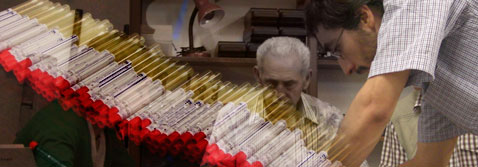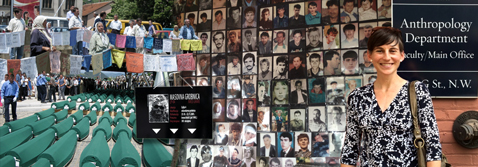Luis Ríos Frutos

Luis Ríos Frutos es Licenciado en Biología y Profesor Ayudante no Doctor de Antropología, Comisión Docente de Antropología del Departamento de Biología de la Facultad de Ciencias de la Universidad Autónoma de Madrid Entre sus líneas de investigación cabe destacar la exhumación e identificación de restos óseos humanos de fosas comunes y cementerios de la Guerra Civil española, la estimación de la edad en restos óseos de adultos jóvenes, y la historia antropométrica en Guatemala y España. Entre sus publicaciones recientes:
- Cardoso HFV, Ríos L. 2011. Age estimation from stages of union in the presacral vertebrae. American Journal of Physical Anthropology 144: 238-247.
- Ríos L, Bogin B. 2010. An Anthropometric Perspective on Guatemalan Ancient and Modern History. En: Living Standards in Latin American History Height,Welfare, and Development, 1750–2000 (Ricardo D. Salvatore, John H. Coatsworth, Amílcar E. Challú, eds). Harvard University Press. Pp. 273-310.
- Ríos L, Ovejero JI, Prieto JP. 2010. Identification process in mass graves from the Spanish Civil War I. Forensic Science International 199: E27-E36.
El libro Ríos L, Bogin B 2005: An anthropometric perspective on the Guatemalan recent history, Congreso: Simposio Living Standards in Latin American History. Harvard University,premiado con la III Edición del Premio Jaume Vicens Vives, “Mejor libro de historia económica de España y Latinoamérica publicado en el bienio 2009-2010”


